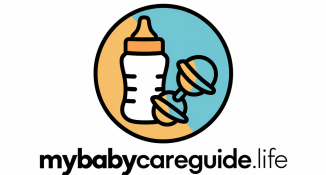Benefits of a Free-Range Parenting Approach
A free-range parenting approach offers several benefits for your child’s growth. It fosters independence by encouraging kids to explore their interests and take on age-appropriate responsibilities. This builds their confidence and decision-making skills. It also helps develop resilience, as children learn to handle challenges and setbacks, boosting their determination. By tackling everyday problems, kids enhance their critical thinking abilities. Additionally, free-range parenting promotes healthy risk-taking, allowing kids to learn their limits while feeling empowered. Balancing freedom with responsibility prepares them for real-life decisions, creating well-rounded individuals. Stick around, and you’ll discover even more about this parenting style!
Fostering Independence in Children

Fostering independence in your children is essential for their growth and confidence. When you encourage them to make choices, tackle tasks, and solve problems on their own, you’re setting the stage for lifelong skills. It’s important to allow them to explore their interests and passions without constant oversight. This doesn’t mean leaving them completely on their own; instead, it’s about providing a balance of guidance and freedom.
Start small by giving your children age-appropriate responsibilities. Simple tasks like choosing their outfits, packing their lunches, or even planning a family outing can build their decision-making skills. Trusting them to handle these tasks not only boosts their confidence but also shows them that you believe in their abilities.
As they navigate these experiences, be supportive, but resist the urge to jump in and fix everything. Encourage them to learn from their mistakes; this way, they’ll develop problem-solving skills that will serve them well throughout life.
Building Resilience Through Challenges

Facing challenges head-on is an essential part of building resilience in children. When you allow your kids to navigate obstacles, you give them the chance to learn how to cope with difficulties. This means they won’t just bounce back when things get tough; they’ll develop a strong sense of perseverance that will serve them well throughout life.
Think about it: when kids encounter setbacks, whether it’s a tough math problem or a disagreement with a friend, they’re learning valuable lessons. They discover that it’s okay to fail and that each failure is just a stepping stone to success. Encouraging your child to tackle challenges, rather than shielding them, helps them develop grit and determination.
As a parent, you can support this process by creating an environment where challenges are embraced. Let them try new things, even if there’s a risk of failure. Celebrate their efforts, not just their successes.
This approach builds confidence and teaches them that challenges are opportunities for growth. In the long run, these experiences will equip your children with the resilience they need to face life’s ups and downs. So, encourage them to take those leaps; it’s worth it!
Enhancing Problem-Solving Skills

Problem-solving skills are essential for children’s development, shaping how they approach challenges and make decisions. When you adopt a free-range parenting approach, you create opportunities for your child to tackle problems independently. This hands-off style encourages them to think critically and explore solutions on their own.
By allowing your child to face everyday challenges, like figuring out how to build a fort or deciding how to resolve a disagreement with a friend, you’re helping them develop essential skills. As they navigate these situations, they learn to assess problems, weigh options, and consider consequences. This kind of practice builds confidence, as they realize they can trust their judgment.
Moreover, when you step back, your child can also learn from their mistakes. It’s important to let them experience setbacks, as these moments are often the most valuable learning experiences.
You can guide them by asking open-ended questions, encouraging them to reflect on their choices. This way, they start to recognize patterns and develop strategies for future challenges.
Encouraging Healthy Risk-Taking

How can you encourage your child to take healthy risks in a safe environment? Start by creating opportunities for them to explore and challenge themselves. Let them climb that tree in your backyard or ride their bike a little farther than usual. These experiences help build confidence and resilience.
You can also guide them in setting their own goals. Encourage your child to try new activities, like joining a sports team or taking a dance class. When they take the initiative, they’re more likely to embrace the challenges that come with it.
It’s essential to discuss the concept of risk with them. Talk about what healthy risk-taking looks like, such as understanding their limits and recognizing when to ask for help.
This conversation can empower them to make informed choices.
Balancing Freedom and Responsibility

As your child learns to embrace healthy risk-taking, it’s also important to help them understand the balance between freedom and responsibility. This balance is essential in fostering their independence while ensuring they make safe choices.
You can start by discussing the responsibilities that come with their newfound freedom, helping them see that their actions have consequences.
Encourage your child to think critically about their decisions. Ask questions like, “What could happen if you do this?” or “How will your choices affect others?” This not only helps them weigh their options but also instills a sense of accountability.
You can set clear guidelines that define acceptable risks, allowing your child to explore within safe boundaries. For example, if they want to ride their bike to a friend’s house, you might discuss safe routes, traffic rules, and the importance of checking in.

